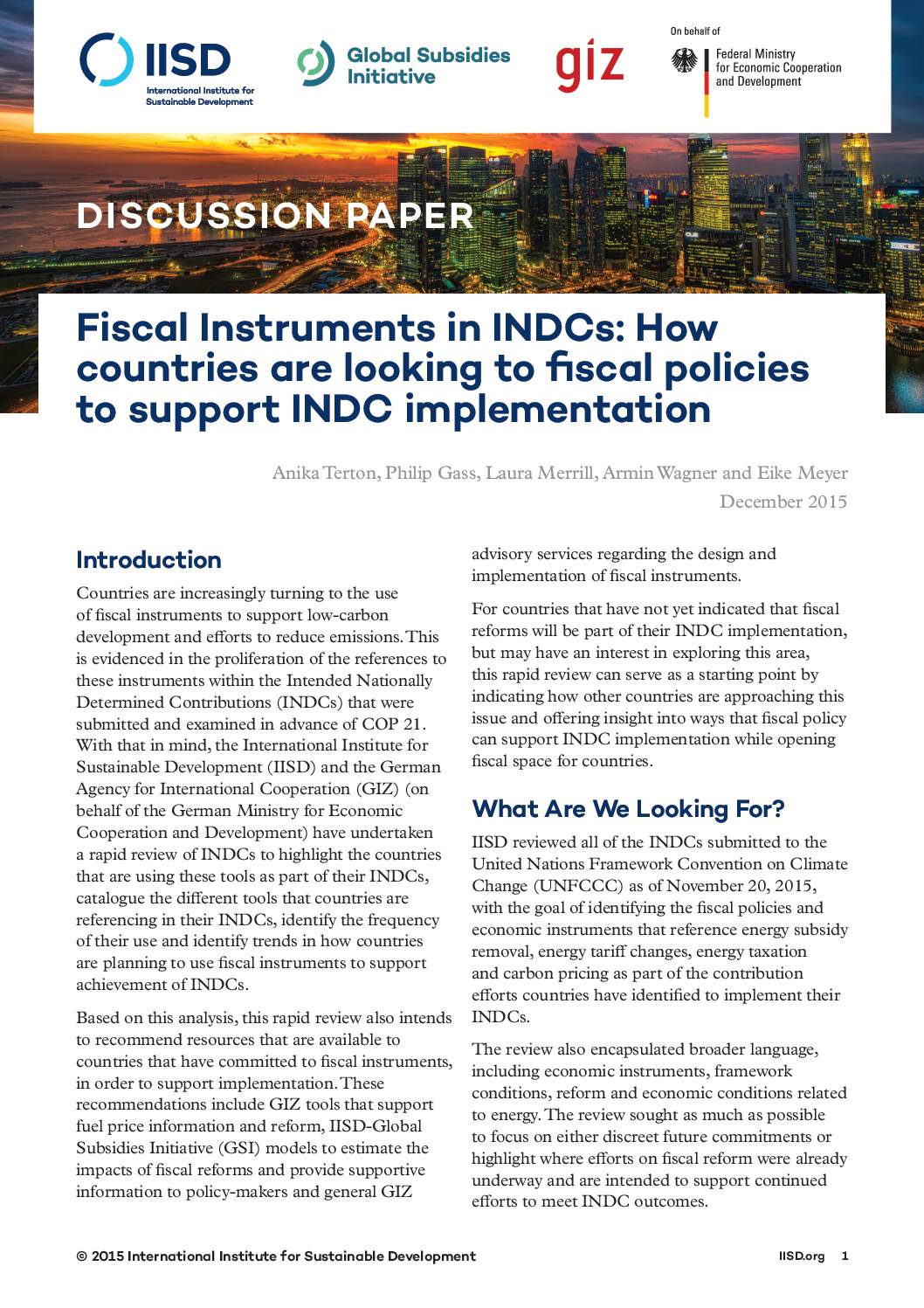Countries are increasingly turning to the use of fiscal instruments to support low-carbon development and efforts to reduce emissions.
This is evidenced in the proliferation of the references to these instruments within the Intended Nationally Determined Contributions (INDCs) that were submitted and examined in advance of COP 21.
With that in mind, IISD and GIZ (on behalf of the German Ministry for Economic Cooperation and Development) have undertaken a rapid review of INDCs to highlight countries that have identified these tools as part of their INDCs, catalogue the different tools countries referenced, detect the frequency of their use and identify trends for how countries are planning to use fiscal instruments to support the implementation of INDCs.
Based on the analysis, this review provides several recommendations, in order to highlight resources that support the implementation of fiscal instruments countries have committed to in their INDCs. For countries that have not yet indicated that fiscal reforms will be part of their INDC implementation, but may have an interest in exploring this area, this rapid review can serve as a starting point by indicating how other countries are approaching this issue and offering insight into ways that fiscal policy can support INDC implementation while opening fiscal space for countries.
Share this

Sectors: Buildings, Cross cutting
Country / Region: Global
Tags: conference of parties, fiscal instruments, implementation, international developmentKnowledge Object: Publication / Report
Published by: IISD
Publishing year: 2015
Author: Anika Terton, Philip Gass, Laura Merrill, Armin Wagner, Eike Meyer
